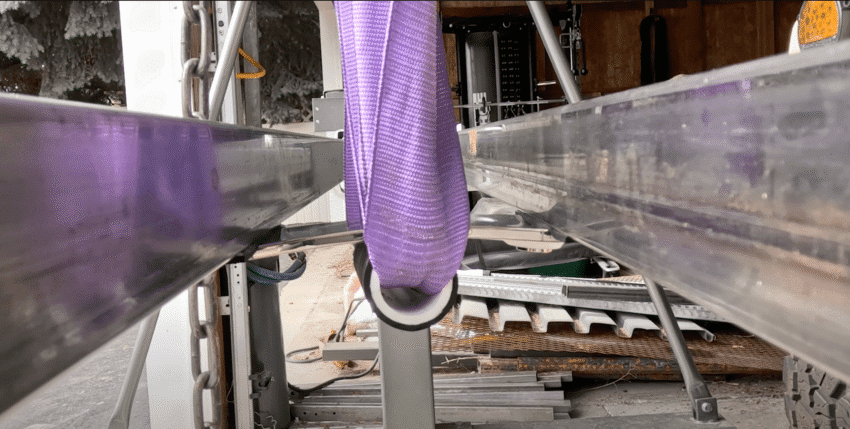
the wafer-thin iphone air is surprisingly strong The iPhone Air, Apple’s latest innovation, has proven to be surprisingly resilient despite its ultra-thin design.
the wafer-thin iphone air is surprisingly strong
Introduction to the iPhone Air
Launched as part of Apple’s ongoing efforts to push the boundaries of smartphone design, the iPhone Air stands out with its remarkable thickness of just 5.6mm. This wafer-thin profile has led many to question its durability, especially in a market where consumers increasingly prioritize both aesthetics and functionality. The iPhone Air is not just about being sleek; it incorporates advanced materials and engineering techniques that enhance its strength and resilience.
Material Composition and Engineering
One of the standout features of the iPhone Air is its titanium frame. Traditionally, smartphones have utilized aluminum for their structural integrity. However, Apple has opted for titanium in the iPhone Air, a decision that has significant implications for both durability and weight. Titanium is known for its high strength-to-weight ratio, making it an ideal choice for a device that aims to be both lightweight and robust.
Benefits of Titanium Over Aluminum
The switch from aluminum to titanium offers several advantages:
- Strength: Titanium is significantly stronger than aluminum, which means that it can withstand greater forces without deforming.
- Elasticity: Unlike aluminum, titanium has a degree of elasticity, allowing it to bend under pressure and return to its original shape without cracking.
- Corrosion Resistance: Titanium is highly resistant to corrosion, which can prolong the lifespan of the device, especially in various environmental conditions.
Durability Testing by JerryRigEverything
To put the iPhone Air’s durability to the test, YouTuber JerryRigEverything conducted a series of experiments that have become a staple of his channel. Known for his rigorous testing methods, JerryRigEverything aimed to determine just how much pressure the iPhone Air could withstand before succumbing to damage.
The Bend Test
In his initial test, JerryRigEverything performed a bend test, which involves applying pressure to the device to see if it can withstand bending forces. Despite applying significant pressure with his thumbs into the center of the screen, the iPhone Air exhibited only slight bowing. Remarkably, it did not crack and quickly returned to its original shape, showcasing the effectiveness of the titanium frame.
Crane Scale Experiment
Not satisfied with the results of the bend test, JerryRigEverything decided to take his testing to the next level. Utilizing a crane scale and metal bars in his garage, he aimed to quantify the exact amount of pressure required to crack the iPhone Air. The results were impressive: it took a staggering 216 pounds of pressure to cause any damage to the device. This finding underscores the strength of the iPhone Air, challenging preconceived notions about the durability of ultra-thin smartphones.
Consumer Implications
The durability of the iPhone Air has significant implications for consumers. In an era where smartphones are often seen as fragile devices that require protective cases, the resilience of the iPhone Air may encourage users to embrace its sleek design without fear of damage. This could lead to a shift in consumer behavior, where aesthetics and functionality are balanced more effectively.
Market Positioning
Apple’s decision to focus on durability in the iPhone Air also positions the company favorably in a competitive market. As other manufacturers continue to release devices with similar thin profiles, the ability of the iPhone Air to withstand rigorous testing could set it apart. Consumers may be more inclined to choose a device that not only looks good but also offers the assurance of durability.
Stakeholder Reactions
The response from both consumers and industry experts has been largely positive. Many users have expressed their surprise at the iPhone Air’s durability, especially given its thin design. Tech reviewers have praised Apple for its innovative use of materials and engineering techniques, highlighting how the iPhone Air challenges the stereotype of fragility associated with slim smartphones.
Expert Opinions
Industry experts have weighed in on the implications of the iPhone Air’s durability. Some have noted that Apple’s use of titanium could inspire other manufacturers to explore alternative materials for their devices. This could lead to a broader trend in the smartphone industry, where durability becomes a key selling point alongside design and functionality.
Conclusion
The iPhone Air has successfully combined an ultra-thin design with impressive durability, thanks to its innovative use of titanium. The results of JerryRigEverything’s tests demonstrate that the device can withstand significant pressure without compromising its structural integrity. As consumers increasingly seek devices that balance aesthetics with functionality, the iPhone Air may set a new standard in the smartphone market.
As technology continues to evolve, it will be interesting to see how other manufacturers respond to Apple’s advancements. The iPhone Air not only challenges existing notions of smartphone durability but also paves the way for future innovations in design and material usage.
Source: Original report
Was this helpful?
Last Modified: September 20, 2025 at 8:36 pm
1 views















